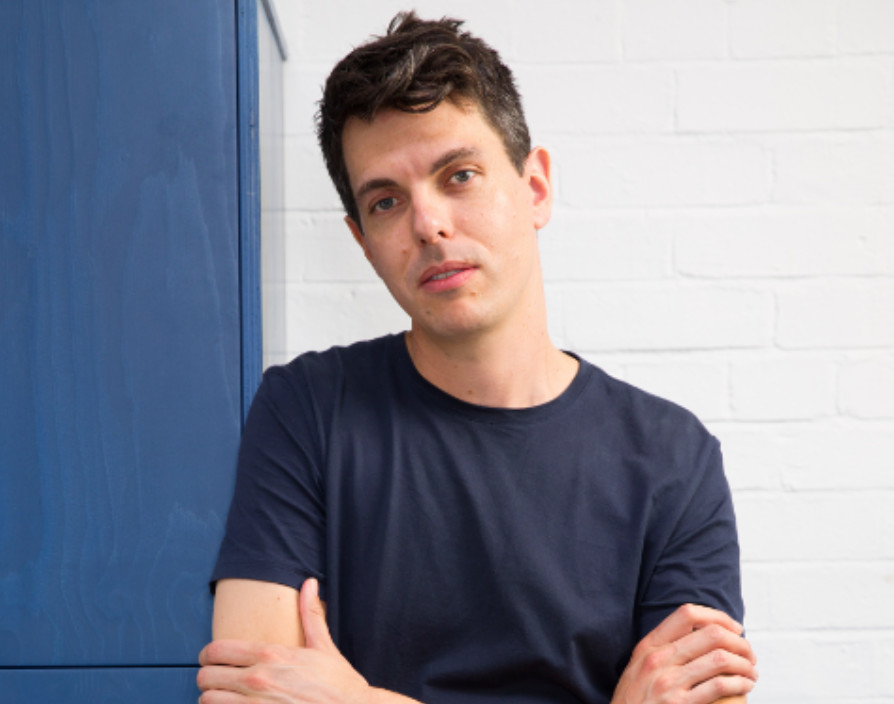“Even if an investor offers you investment money but something doesn’t feel right, you can walk away,” Tim Williams, founder and CEO of YR told me. “We got our offer on Dragon’s Den and despite the financial pressure on us to accept, we had to walk away as it wasn’t right for us at the time.” Tim and his business partner, Tom Hogan, long-time school friends from South Wales, kickstarted their own revolutionary customisation company YR, which focuses on developing a personalised fashion experience through printing technology and design software.
“I met Tom, business partner, at school and we used to spend all our free time together. Now we try to spend all our free time apart!” Tim tells me. Tim and Tom kickstarted YR in 2008 with plans to bring about a change to the retail industry. Their company focuses on combining design and technology, creating upscale interactive pieces for events and exhibitions to some of the world’s biggest retailers. Through customisation, they aim to help brands build a stronger relationship with their audience. Growing up in the same school, the two friends turned business partners never knew they would kickstart such an inventive company many years later.
“Tom and I are school friends and we grew up together in South Wales, Tom is the brains behind the software coding as well as really understanding the interplay of hardware and software,” Tim said. “Together we focused on the whole customer experience as opposed to the software or the in-store printing, in isolation. We have grown the company together and continue to work closely on everything we do.” Tim runs the show while Tom is the man behind the tech. With their combined knowledge in technology, digital and business strategy, the two friends are taking over the retail world by storm, working with the world’s leading fashion and beauty brands including DKNY, Michael Kors, Nike, Levi and L’Oréal. They started with retail stores but saw the demand for personalisation in the retail industry, so they shifted their focus to working with brands to deliver customisation services to the masses.
It wasn’t a walk in the park for the two friends. In the early days of YR, Tim and Tom resorted to hiring out free shop space for free and purchased second hand equipment from eBay. They had to learn how to programme their software from scratch, having no prior knowledge to how printing systems worked.
“It was really hard early on! We funded the first store by blagging the shop space for free and then used anything we could to build our vision for YR, Tim said. “The first set of equipment in store was bought second-hand, battered and beaten up – off eBay – we knew almost nothing about the very specialist printing we would end up offering!”
With help along the way and investors who believed in their vision, they managed to upscale their business tremendously over the years, establishing offices in London, New York, LA, Hong Kong and Tokyo with an expected a £9 million turnover this year.
“We asked favours and really built a great team, the amazing thing was that lots of people believed in YR and how exciting it was,” Tim added. “After opening the first store we had to make money, of course and that was tough. We got creative with the retail space we had and hosted events with brands that made YR money. The main struggle back then was keeping the flow of consumers coming through the door when we had zero marketing budget. But somehow, we survived to and grew!”
Tim believes there are perks to jumping head first into starting your own business, especially in your 20s. With minimal risk factors and fewer commitments earlier on in your life, it’ll be easier to jump back on your feet if failure hits early on.
“Being able to call on a network of friends and of course being close in age to our target market is a huge help,” he added. “I think we also had the luxury of being able to fail – neither Tom nor I had any kids so it was only us we had to worry about in the early days. I guess the fact that we were young helped people believe in us and I think it works in your favour.”
As young entrepreneurs starting out in the game, Tim and Tom had little finances and resources to begin with. They also recalled how they were often harshly critiqued by investors who raised eyebrows at their idea, saying it was difficult to win people’s trust at first.
“I think there are two ways to look at it – on one hand young entrepreneurs don’t have experience and credibility, necessarily so it can be hard to get in front of investors or even get people to believe in them,” Tim said. “I think it’s also hard if you don’t have any resources or sources of finance, to start a business when you are young you do need to have some money. That means it will probably exclude a lot of people from starting their own business.”
Despite that, young people are now seen as more viable due to their extensive knowledge of social media platforms – something that investors are often willing to capitalise on, Tim said.
“On the other side, young people are now seen as highly investible, able to capitalise on new routes to reach their target market like Instagram and TikTok,” he added. “So, for some, it’s a great time to be young and entrepreneurial.”
Tim and Tom believe personalisation is becoming increasingly important in the fashion world as many people are now looking for personalised products rather than a size fits all approach. Personalisation allows consumers to pay a little more for a bespoke product, helping them steer away from fast fashion brands which are unsustainable and bad for the environment in the long-run.
“Consumers’ habits have changed and they will pay more for goods made just for them, with a great fit and customised experience and final design,” he said. “Sustainability is a key factor and mass-produced garments are losing favour with environmentally friendly products becoming more important than ever to the modern fashion buyer. As fast fashion declines, at YR we want to give consumers the chance to create something that they truly feel represents them and they have had a hand in designing.
“We believe this personal touch increase the longevity of the products life wear and helps to reduce the impact that fast fashion has on the environment. YR can help our customers reduce wastage in the supply chain, whilst understanding the need for creating engaging customer experiences to differentiate our clients’ retail stores online and in the high street.”
Tim and Tom had their big break when they appeared on Dragon’s Den in 2010. They asked investors a £50,000 investment in exchange for a slice of their business and were offered the money. However, they decided to decline the investment, saying “it just wasn’t right” at the time.
“Deborah Meaden and Peter Jones offered us the full £50k for 40% of the business – but it was double the equity we originally offered the Dragons,” Tim explained. “As tempting an offer as their investment, business connections and expertise was, it just wasn’t right for us.”
“Both Deborah and Peter were open and honest that they would not have a huge amount of time to invest after they have paid the initial capital to us. As the founders, this was a labour of love that we hadn’t gone into to make fast money so we had to make the decision that would be best for YR in the long term, even if it slowed our scale up plans.”
The two friends wanted to see their business cultivate and grow organically rather than become an overnight success. Their business move paid off, with an expected $9 million turnover this year, they now work with some of the biggest brands in retail such as Nike, Levi and L’Oréal.
“It seemed insane to decline a virtually instant growth opportunity in favour of an organic, passion driven proposition, but ironically it has paid dividends,” Tim said. “We have created the company that we always wanted it to be and launched offices in New York, LA, Hong Kong and Tokyo as well as London. We have been lucky enough to build relationships with global fashion brands such as DKNY, Michael Kors, Nike, Levi and L’Oréal are on course this year to turnover $9 million.”
In a word of advice to budding entrepreneurs, Tim stressed the importance of trusting one’s gut feeling, especially early on in business. Despite the pressure to accept the deal from Dragon’s Den, the two friends knew it wasn’t the right move.
“Trust your gut, even if an investor offers you investment money but something doesn’t feel right, you can walk away,” Tim said. “We got our offer on Dragon’s Den and despite the financial pressure on us to accept, we had to walk away as it wasn’t right for us at the time.”
Business owners should start a company they’re passionate about if they want to stick it out for the long-run, Tim said. The work will be intense and hours will be long, so the more you can enjoy it, the smoother your ride will be.
“Do what your love, it will be long hard hours and sometimes months of living hand to mouth so you have to have a love for the brand or product or it will really bring you down,” Tim added. “We are pretty geeky to be honest and tech is our passion so building YR doesn’t actually feel like ‘work’.”
Picking a business partner is one of the most vital components of building a start-up – Tim said he was lucky to have known Tom for years, as trust in teammates is a vital aspect when it comes to running a business.
“Pick your partners wisely,” Tim added. “It goes without saying that having a business partner can be absolutely brilliant or doomed for failure. Tom and I know each other really well and we trust each other implicitly – this is crucial if you want to succeed.”
With all the tips and tricks that come with launching a successful business, nothing can beat sheer hard work, embracing constant rejection and working your way up the ladder despite obstacles that rise up along the way.
“Grafting should probably be at the top!” Tim stressed. “It may seem like a lot of entrepreneurs are suddenly making a lot of money but there is a lot of graft and hard work, rejections and moments of despair that have gotten them there. We now operate across three different continents and work with some of the world’s biggest fashion brands, but we couldn’t have taken YR this far if it wasn’t for pure hard work.
“The hours are long, the travel is exhausting and some months, my social life is non-existent. That said, when you’re doing what you love, it doesn’t feel like such a slog.”
Share via:








































